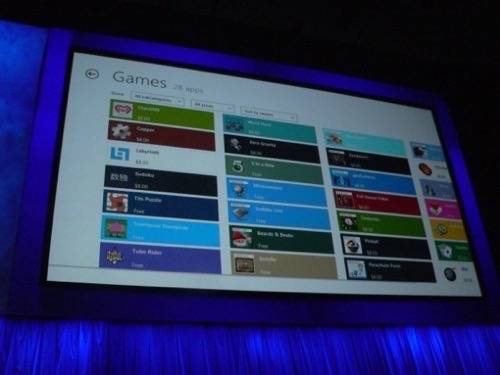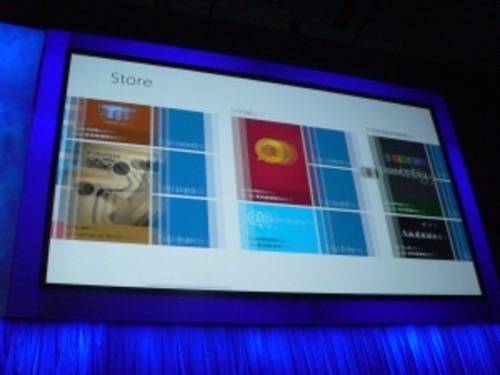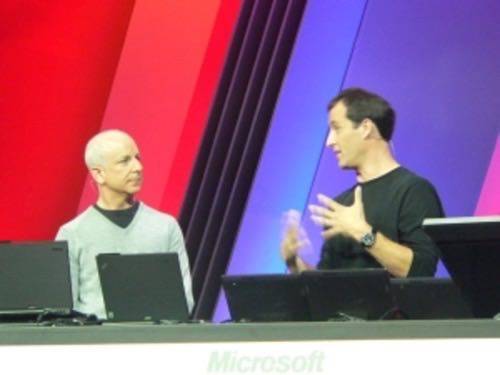
There will be an apps store platform built into Windows 8, and there will be a self-service mechanism for developers to publish their wares and make money from them. That much, we know. We do not know yet how the licensing arrangements will be worked out with Microsoft – in other words, how much of a cut the company will get. This may not yet have been decided.
A demonstration of a very early prototype of the App Store was given to members of the press by Windows 8 program managers. We were given later glimpses of the new online storefront during the Day 1 keynote.
However, here is what we were able to determine of the company’s plan: “Store,” as it is being called for the nonce (perhaps waiting to see what other words Apple may have trademarked in advance), gives a new retailer a wizard-like console for filling in the details about the product he wishes to upload and sell. The platform is intended for Metro apps, the new model of Windows application designed to use tiles on the Start Screen, and use the WinRT runtime platform being introduced in Windows 8.

“Store” will be a prominent tile on the first page of the new Windows 8 Start Screen. The store itself will be arranged much like the Start Screen, but with a reverse color scheme – rather than bright tiles against green, mostly green tiles against white. Each page of this store will be a department, such as “Home” or “Games.”
Although conventional Windows applications will also be for sale in “Store,” Microsoft has clarified its stance on the terms for conventional Desktop apps that may appear in “Store.” Manufacturers may make separate arrangements for their Desktop products to appear there; there won’t be a self-service system for Win32 or .NET architecture applications. However, as Windows Division President Steven Sinofsky told attendees here this morning, Microsoft will steer clear of making any adjustments to existing licenses for Desktop apps. It does not appear Microsoft wants a cut of sales for these apps.

It’s conceivable you may find not only Office but Photoshop and other Desktop apps available as well (the prototype showed Intuit Quicken).
Retailers and developers making Metro apps available for sale will be certified through Microsoft. In other words, consumers won’t be led astray by false banners made visible through “Store.” A retailer may offer multiple, optional licenses at one time – for example, a 7-day or 30-day free trial, followed by a purchase prompt, along with the option to pay less up front. The purchase, downloading, and installation processes will be completely contained by this Metro app. (It will be interesting to see how “Store” implements User Account Control, if at all.)
Once sales have already started for a product, retailers will have access to a sophisticated array of statistics about the purchasers – not just how many and how much they paid, but classes and market segments based on data gleaned from their Windows Live IDs. Optionally, developers will be able to deploy telemetry into their Metro apps, enabling them to report back to the developers when they’ve crashed, and potentially why as well.
Metro apps distributed with the developers’ preview release of Windows 8, given to attendees today, were conceived and built in a 10-week timeframe by a select group of college sophomores and juniors studying the fine art of programming, according to Sinofsky.

















